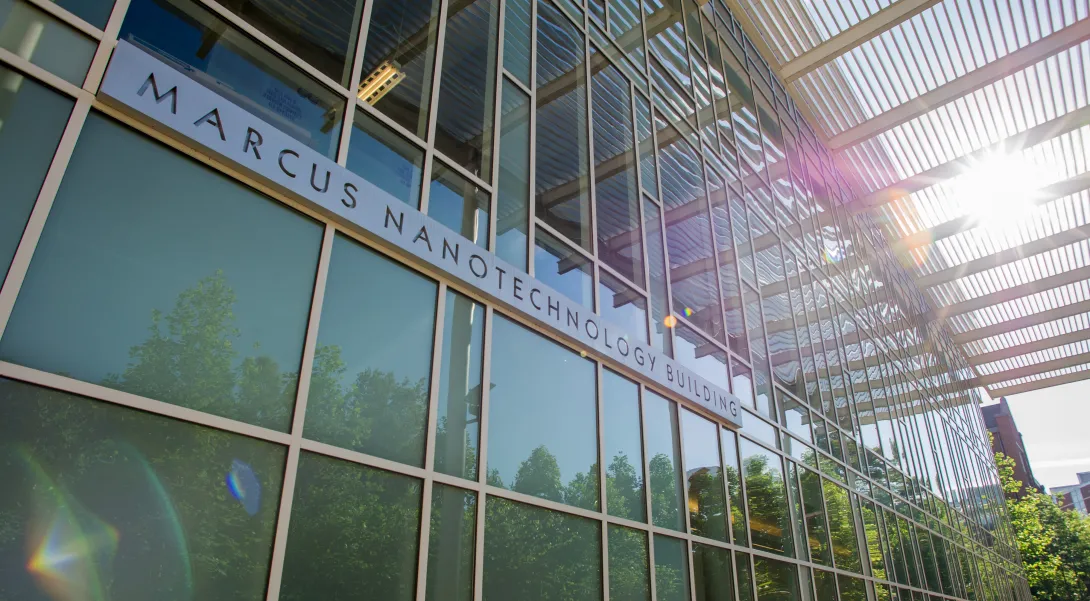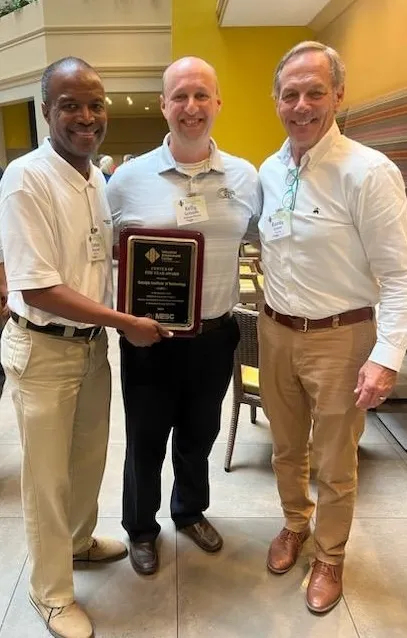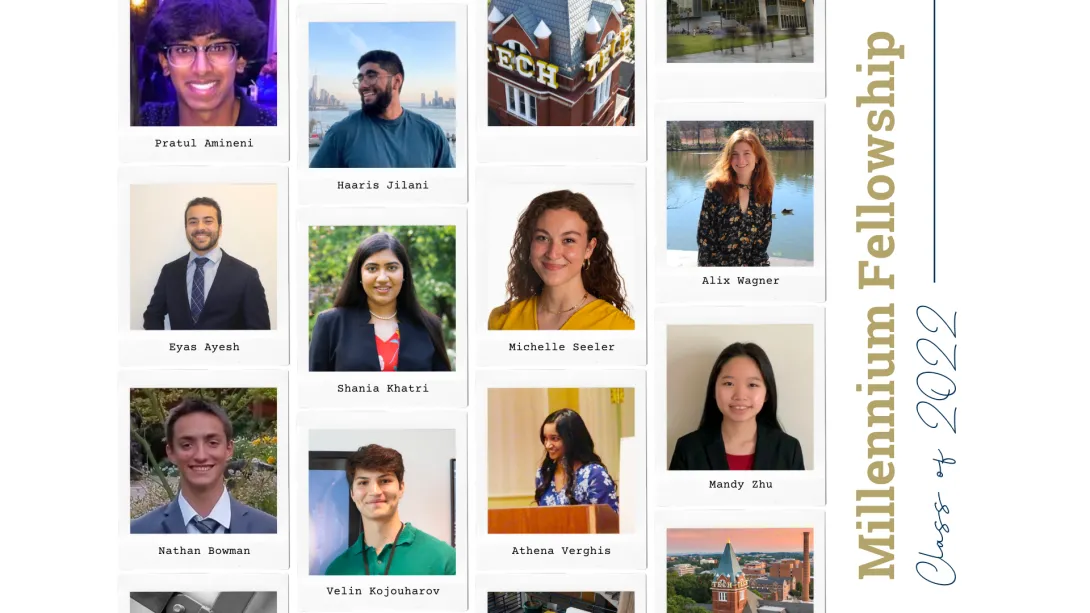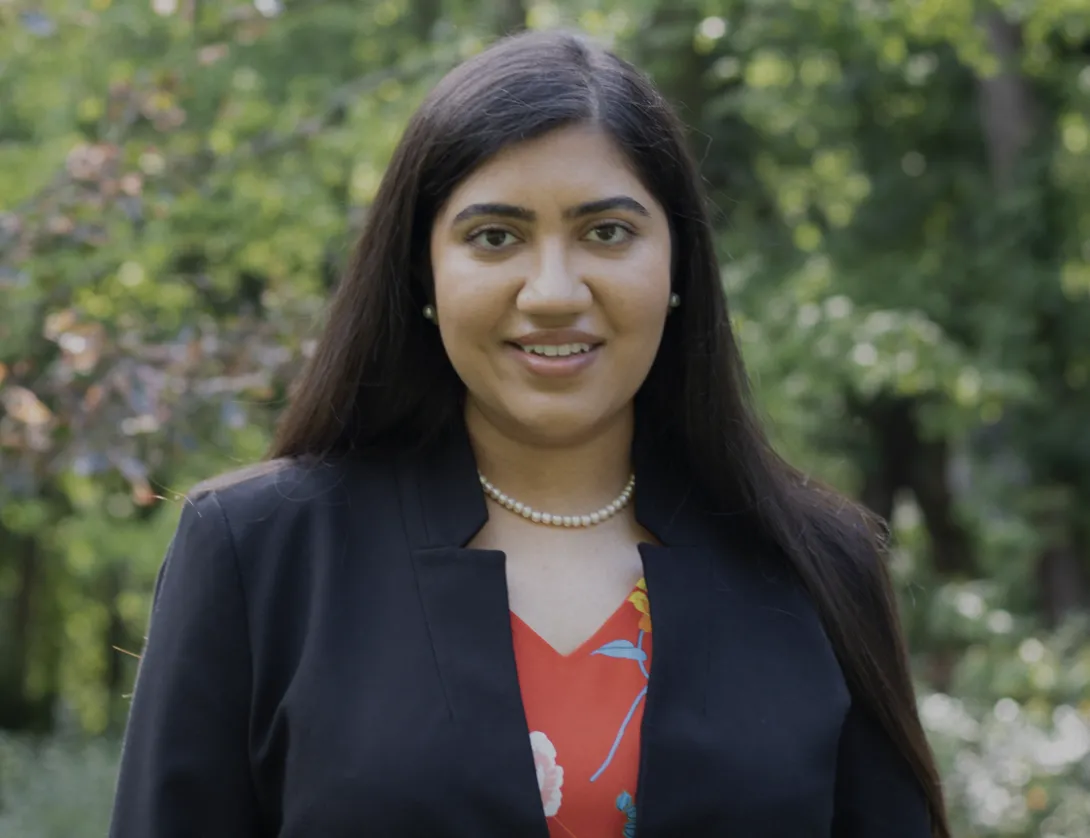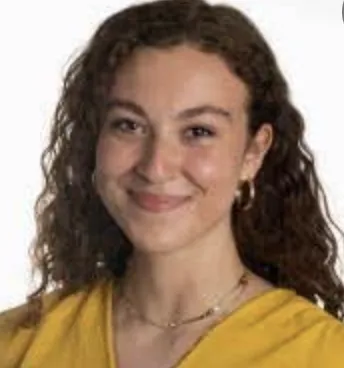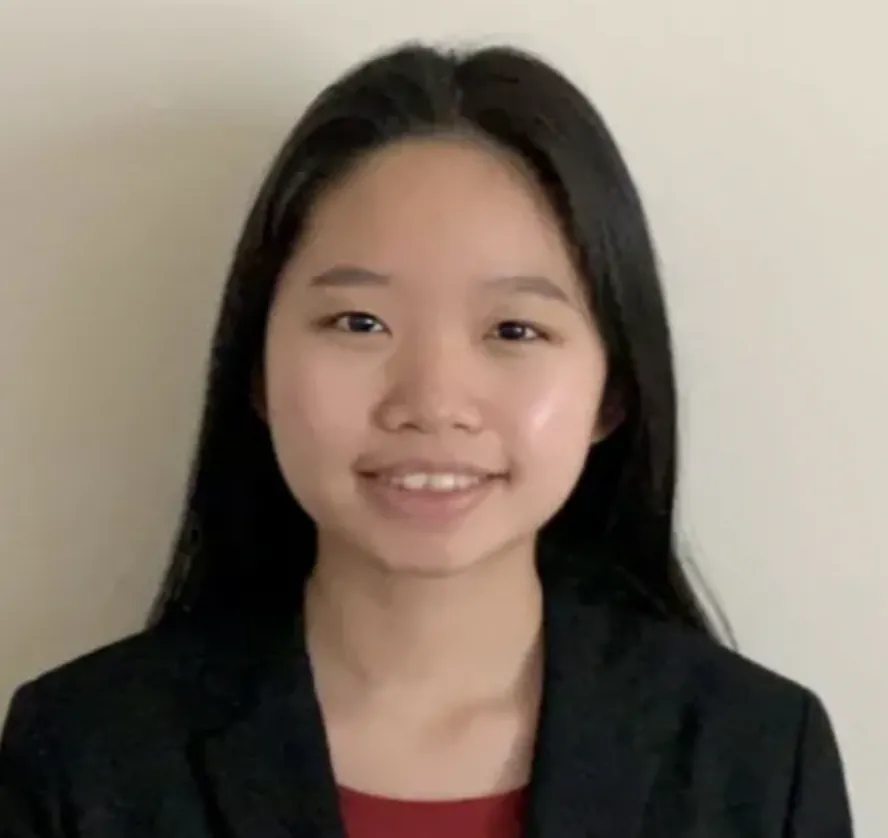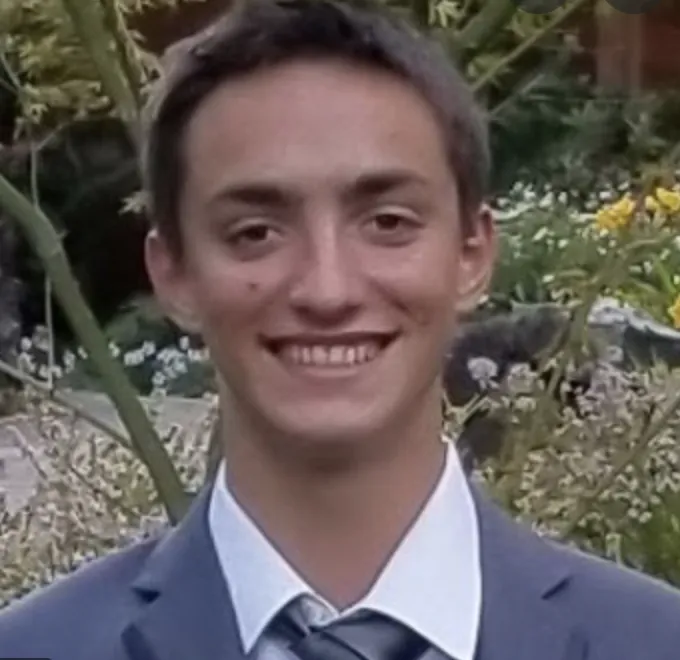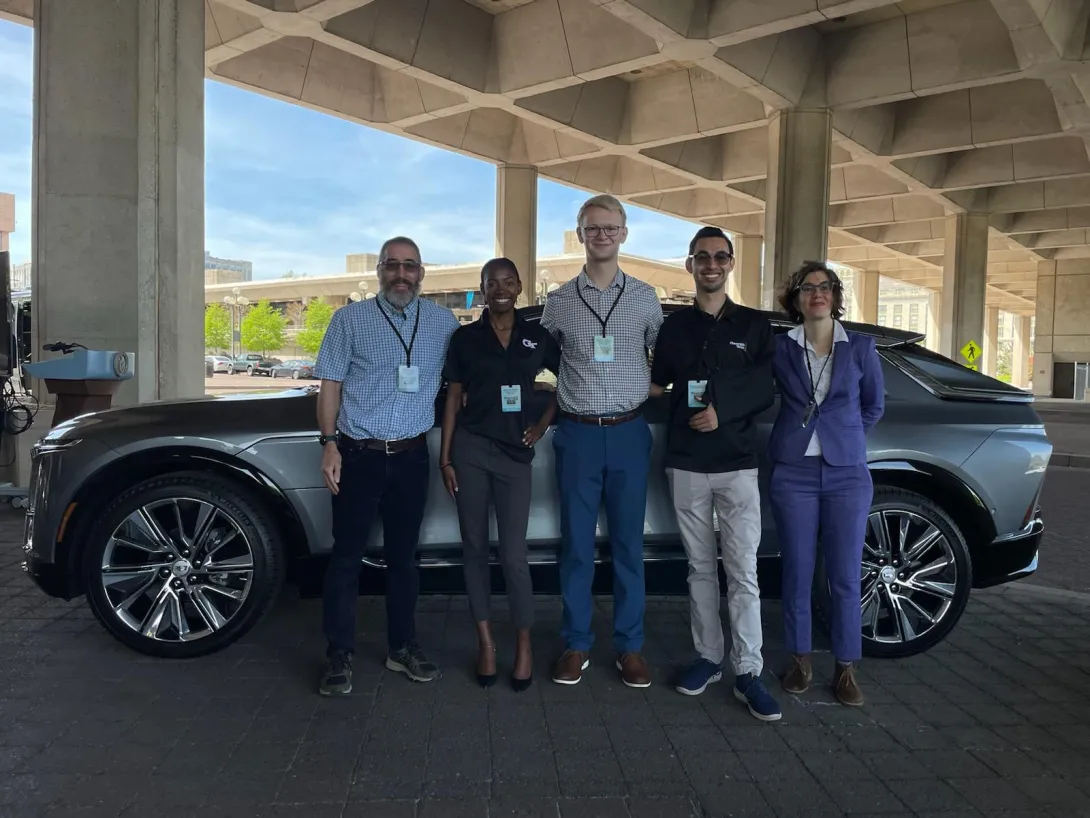Jan. 21, 2025
Georgia Institute of Technology is set to play a crucial role in a strategic effort funded by the Defense Advanced Research Project Agency (DARPA) to help bolster America’s national security and global military leadership.
The project, led by the Texas Institute for Electronics (TIE) at The University of Texas at Austin, represents a total investment of $1.4 billion. The $840 million award from DARPA, announced by TIE in 2024, aims to develop the next generation of high-performing semiconductor microsystems for the Department of Defense (DoD).
“We are honored to collaborate with TIE and its broader team on this far reaching and strategic program to enable best in class 3D heterogeneous integration (3DHI) processes and technologies in the United States,” said Muhannad S. Bakir, the Dan Fielder Professor in the School of Electrical and Computer Engineering and director of the 3D Systems Packaging Research Center, who is heading the project for Georgia Tech.
3DHI is a semiconductor manufacturing process that incorporates different materials and components into microsystems with precision assembly. The use of 3DHI allows for the creation of high-performance, compact, and energy-efficient systems.
The investment is part of DARPA’s Next Generation Microelectronics Manufacturing (NGMM) Program comprised of 32 defense electronics and leading commercial semiconductor companies and 18 nationally recognized academic institutions.
Under the agreement, TIE will establish a national open access R&D and prototyping fabrication facility. The facility will enable the DoD to create higher performance, lower power, lightweight, and compact defense systems. The advancements are expected to have wide-ranging applications, including radar, satellite imaging, and unmanned aerial vehicles.
Georgia Tech will provide a wide range of expertise in 3DHI including design, fabrication and assembly processes, and characterization to support the NGMM national open-access R&D and prototyping facility at TIE.
Regents' Professor and Morris M. Bryan, Jr. Professor Suresh K. Sitaraman in the George W. Woodruff School of Mechanical Engineering will be a key contributor to Georgia Tech’s efforts on the project.
“We are delighted to be partnering with UT/TIE on the establishment of a 3D Heterogeneous Integration Microsystem prototyping facility,” said Sitaraman. “In addition to advancing fundamental science, this project is a great opportunity for Georgia Tech to demonstrate and integrate our ground-breaking and innovative 3DHI research approaches and technology solutions into TIE’s prototyping facility, and understand the challenges involved when translating lab-scale research work to a large industry-strength fabrication facility.”
ECE Professors Saibal Mukhopadhyay, Arijit Raychowdhury, Visvesh Sathe, and Shimeng Yu will be working alongside Bakir and Sitaraman.
A significant portion of the research will be conducted at the Institute for Matter and Systems (IMS), which operates Georgia Tech’s state-of-the-art electronics and nanotechnology core facilities.
Read the press release from TIE and view the project’s team and partners.
News Contact
Dan Watson
Aug. 09, 2024
The federally funded IAC program provides small to mid-sized industrial facilities in the region with free assessments for energy, productivity, and waste, while also supporting workforce development, recruitment, and training.
“This IAC is a great example of the ways in which Georgia Tech is serving all of Georgia and the Southeast,” said Tim Lieuwen, executive director of Georgia Tech’s Strategic Energy Institute (SEI) and Regents’ Professor and holder of the David S. Lewis, Jr. Chair in the Daniel Guggenheim School of Aerospace Engineering.
“We support numerous small and medium-sized enterprises in rural, suburban, and urban areas, bringing the technical expertise of Georgia Tech to bear in solving real-world problems faced by our small businesses.”
Georgia Tech’s IAC, which serves Georgia, South Carolina, and North Florida, is administered jointly by the George W. Woodruff School of Mechanical Engineering and the Georgia Manufacturing Extension Partnership (GaMEP), part of the Enterprise Innovation Institute (EI2). The organization has performed thousands of assessments since its inception in the 1980s – usually at the rate of 15 to 20 per year – and typically identifies upwards of 10% in energy savings for clients.
The assessment team, overseen by IAC associate director Kelly Grissom, comprises faculty and student engineers from Georgia Tech and the Florida A&M University/Florida State University College of Engineering.
In addition, Georgia Tech leads the Southeastern IACs Center of Excellence, which partners the institution with fellow University System of Georgia (USG) entity Kennesaw State University, local HBCU Clark Atlanta University, and neighboring state capital HBCU Florida A&M University.
Although mechanical engineering has historically been the chief area of concentration for IAC’s interns, the program currently accepts students across a range of disciplines. “Increased diversity from that standpoint enriches the potential of the recommendations we can make,” said Grissom.
Students are integral to the program, as is Grissom’s role in facilitating their experiences with client engagement and technical recommendations.
“Kelly is the reason our program has been recognized,” said Randy Green, energy and sustainability services group manager at GaMEP. “He works tirelessly to ensure that assessments are accomplished with success for our manufacturers and students.”
“We also recognize our partnership with the Woodruff School of Mechanical Engineering and with IAC program lead Comas Haynes, Ph.D., who works diligently to keep us on track and connected with our sponsors at the U.S. Department of Energy,” Green added.
The DoE accolade represents “a ‘one Georgia Tech’ win,” symbolic of the synergistic relationships forged across the Institute, said Haynes, who also serves as the Hydrogen Initiative Lead at Georgia Tech’s Strategic Energy Institute (SEI) and Energy branch head in the Intelligent Sustainable Technologies Division at the Georgia Tech Research Institute. Haynes specifically cited Green’s “technical prowess and managerial oversight” as another key to the IAC program’s success.
Said Devesh Ranjan, Eugene C. Gwaltney, Jr. School Chair and professor in the George W. Woodruff School of Mechanical Engineering, “It is truly an honor for Georgia Tech to be named the Department of Energy Industrial (Training and) Assessment Center of the Year. Clean energy and manufacturing have been a focus for the Institute and the Woodruff School for a long time, and GTRI, EI2, and SEI have collaboratively done phenomenal work in helping manufacturers save energy, improve productivity, and reduce waste.”
To check eligibility and apply for assistance from Georgia Tech’s IAC, click here.
News Contact
Eve Tolpa
eve.tolpa@innovate.gatech.edu
Oct. 03, 2022
Note: This story, written by Cory Hopkins, first appeared on the website of the Office Of Undergraduate Education, and has been tailored for our audiences.
Ten Georgia Tech students, including four from the College of Sciences, were selected for the 2022 Millennium Fellowship, a joint leadership program of the Millennium Campus Network (MCN) and the United Nations Academic Impact (UNAI).
The fellowship is an ambitious program to help make the United Nations Sustainable Development Goals (SDG) and UNAI principles a reality. The Class of 2022 Millennium Fellows have been selected among a record-breaking 31,397 applicants from over 2,417 campuses across 140 nations.
Millennium Fellows are university undergraduates selected based on their leadership on sustainable development-related projects that advance the SDGs in their communities. As Millennium Fellows, they will participate in a semester-long leadership development program to improve their student organizing, partnership building, and community impact skills.
"Students' ongoing pursuit of the Millennium Fellowships reflects Georgia Tech's larger commitment to pursuing solutions on a global scale. The fellowship supports real-world initiatives in sustainable development, providing leadership training and a community of like-minded recipients," said Shannon Dobranski, director of Pre-Graduate and Pre-Professional Advising in the Georgia Tech Career Center. "Each year, the Millennium Fellowship helps Georgia Tech students invested in sustainability to identify and connect with each other. It also helps them to refine and articulate their own goals related to sustainability and the impact they hope to have on their community now and in the future."
Three School of Biological Sciences students are included in the latest cohort of Millennium Fellows: Shania Khatri, Michelle Seeler, and Mandy Zhu. Biochemistry major Nathan Bowman, also invited to the Fellows program, plans to pursue his project at a later date.
The College of Sciences students join six more Georgia Tech Millennium Fellows:
- Pratul Amenini, Biomedical Engineering
- Eyas Ayesh, Mechanical Engineering
- Haaris Jilani, Biomedical Engineering
- Velin Kojouharov, Mechanical Engineering
- Athena Verghis, Environmental Engineering
- Alix Wagner, Biomedical Engineering
The Millennium Fellowship Class of 2022 includes over 3,000 Millennium Fellows on 200 campuses in 37 nations that are participating in the program this year. The Class of 2022 is on track to engage in projects collectively advancing all 17 Sustainable Development Goals and all 10 UNAI Principles.
Georgia Tech's fellowship recipients will take part in a semester-long development program divided into three parts:
1. CONVENE
- Georgia Tech Millennium Fellows will convene on-campus to learn from and challenge each other. Millennium Fellows convene at least 8 times during the program.
2. CHALLENGE
- Students will develop a plan of action for their sessions together, meet to exchange best practices, and think bigger.
3. CELEBRATE
- When the cohort meets their goals and completes the Fellowship graduation requirements, they will earn a certificate of recognition from United Nations Academic Impact and Millennium Campus Network.
Learn more about the Millennium Fellowship here.
How to Apply for This Fellowship and More
Promoting and supporting the Millennium Fellowship is a team effort each year. Pre-Graduate and Pre-Professional Advising works with fellowship administrators to host information sessions and Serve-Learn-Sustain reaches out to the SLS community to spread the word. Students interested in the Millennium Fellowship, or any nationally or internationally competitive award, should follow up by scheduling an appointment with Prestigious Fellowships Advisor, Karen Mura, on AdvisorLink.
Pre-Graduate and Pre-Professional Advising is part of the Office of Undergraduate Education (OUE). Learn more about OUE by following @gtoue on Instagram, Twitter, and Facebook.
News Contact
Writer: Cory Hopkins
Contact: Renay San Miguel
Communications Officer II/Science Writer
College of Sciences
404-894-5209
Apr. 28, 2022
WASHINGTON, April 22, 2022 – The U.S. Department of Energy (DOE), General Motors and MathWorks announced the 15 North American universities and the 2023 Cadillac LYRIQ as the vehicle selected for the EcoCAR EV Challenge, the next DOE-sponsored Advanced Vehicle Technology Competition (AVTC) set to begin in Fall 2022.
Georgia Tech has earned a spot as one of the 15 universities to participate in this prestigious series. “This year, the selection process was highly competitive due to the number of outstanding applications we received from universities, big and small, across the U.S and Canada,” said Kristen Wahl, Director of the Advanced Vehicle Technology Competition (AVTC) Program at Argonne National Laboratory. “We are pleased to announce that Georgia Tech will be competing in the EcoCAR EV Challenge and we are excited to see what the teams will accomplish in supporting the country’s transition to clean energy and electric vehicles.”
Managed by Argonne National Laboratory, the EcoCAR EV Challenge will be at the cutting edge of automotive engineering education, serving as a proving ground for future automotive engineers. The four-year competition will challenge students to engineer a next-generation battery electric vehicle (BEV) that deploys connected and autonomous vehicle (CAV) features to implement energy efficient and customer-pleasing features, while meeting the decarbonization needs of the automotive industry.
“Georgia Tech is elated to be accepted into the EcoCAR EV Challenge, which marks our third consecutive Advanced Vehicle Technology Competition (AVTC). Georgia Tech’s participation in multiple AVTCs has significantly enriched the hands-on learning and training opportunities valued by our students, faculty, and administration. We greatly appreciate the financial and technical support provided by the headline sponsors, to include the U.S. Department of Energy, General Motors, and the Mathworks. With the new vehicle platform being an electric vehicle, and with an increased emphasis on diversity, equity, and inclusion, Georgia Tech looks forward to renewing our participation in one of the premier vehicle competitions in the United States.” Dr. Raheem Beyah, Dean, College of Engineering & Southern Company Chair at Georgia Institute of Technology.
Georgia Tech students will work on the EcoCAR Challenge through a Vertically Integrated Projects (VIP) class, which is led by Woodruff School professors Antonia Antoniou and Michael Leamy, and School of Electrical and Computer Engineering professor David Taylor. The project is open to students of all majors and levels of experience with an emphasis on computer engineering, electrical engineering, mechanical engineering, management, and computer science.
“In addition to the technical skills they acquire working on the EcoCAR Challenge, students gain valuable teamworking and project management skills, which prepare them well for a career in the automotive industry,” said Professor Michael Leamy. “We are thrilled to be selected to continue our participation in this incredible program.”
General Motors will donate a 2023 Cadillac LYRIQ to each team, challenging them to design, build, refine, and demonstrate the potential of their advanced propulsion systems and CAV technologies over four competition years. Teams will be tasked with complex, real-world technical challenges including enhancing the propulsion system of their LYRIQ to optimize energy efficiency while maintaining consumer expectations for performance and driving experience.
More than $6M will be provided to the selected universities, including four Minority Serving Institutions, funding students to pursue advanced mobility research and experiential learning and supporting the recruitment and retention of underrepresented minority students and faculty to help build an EV talent pipeline that reflects the diversity of North America.
To improve diversity in STEM and higher education, diversity, equity, and inclusion will be incorporated into all areas of the competition. Teams will be challenged to identify and address specific equity and electrification issues in mobility through the application of innovative hardware and software solutions, outreach to underserved communities and underrepresented youth to increase awareness about advanced mobility and recruit underrepresented minorities into STEM fields. Four Minority Serving Institutions, including two Historically Black Colleges and Universities (HBCUs), will also share more than $1M to strengthen their automotive programs and recruit and retain underrepresented minority students and faculty.
The universities selected to participate in the EcoCAR EV Challenge include:
- Embry-Riddle Aeronautical University/ Bethune-Cookman University
- Georgia Institute of Technology
- Illinois Institute of Technology
- McMaster University (Canada)
- Mississippi State University
- Ohio State University / Wilberforce University
- University of Alabama
- University of California, Riverside
- University of California, Davis
- University of Texas at Austin
- University of Waterloo (Canada)
- Virginia Tech
- West Virginia University
“Argonne has managed the Advanced Vehicle Technology Competitions program for DOE in partnership with the auto industry for more than three decades. The EcoCAR EV Challenge will build upon the program’s rich history to provide North America’s premier training ground for future EV engineers. Academia and Industry both recognize the role of experiential learning in helping to prepare students for the rapidly evolving automotive workforce,” said Wahl.
These universities will build student teams with multi-disciplinary engineering skill sets, such as Mechanical, Electrical, Computer, and Software engineering. The teams will also engage students from various other backgrounds such as Communications, PR, Business and Project Management to emulate the real-world experience of working in the automotive industry. This cross-disciplinary approach is critical to success in EcoCAR and also prepares students for successful careers in the mobility sector.
The competition will kick off in Fall 2022 and conclude in May 2026. For more information, please visit ecocarevchallenge.org or avtcseries.org.
About EcoCAR EV Challenge:
EcoCAR EV Challenge is a four-year collegiate engineering program that builds on the successful 34-year history of Department of Energy Advanced Vehicle Technology Competitions (AVTC) that exemplify the power of government/industry partnerships in addressing our nation’s toughest energy and mobility challenges and providing invaluable practical skills of promising young minds ready to enter the workforce.
The EcoCAR EV Challenge is managed by Argonne National Laboratory and sponsored by the U.S. Department of Energy, General Motors, and MathWorks as the headlining sponsors.
General Motors provides each of the competing teams with a Cadillac LYRIQ – the brand’s first all-electric vehicle built on GM’s Ultium Platform which encompasses a common set of propulsion components – battery cells, modules, packs and a family for Ultium Drive units. GM also provides vehicle components, seed money, technical mentoring and operational support.
A foundational principle of EcoCAR is the use of Model-Based Design, a mathematical and visual design approach using MATLAB and Simulink that enables users to manage projects quickly and cost-effectively, collaborate on designs, and develop complex embedded systems. MathWorks provides teams with a full suite of software tools, simulation models, training, technical mentoring and operational support.
The U.S. Department of Energy and its research and development facility, Argonne National Laboratory, provide competition management, team evaluation and logistical support. Other sponsors provide hardware, software and training.
# # #
Reference to any specific commercial product, process, or service by trade name, trademark, manufacturer, or otherwise does not constitute or imply the U.S. Department of Energy’s endorsement, recommendation, or favoring by the U.S. Government or any agency thereof. The Department of Energy’s role in this competition does not include the solicitation or selection of sponsorships, nor does it include the establishment of sponsorship criteria.
News Contact
Dan Watson
dwatson@ece.gatech.edu
